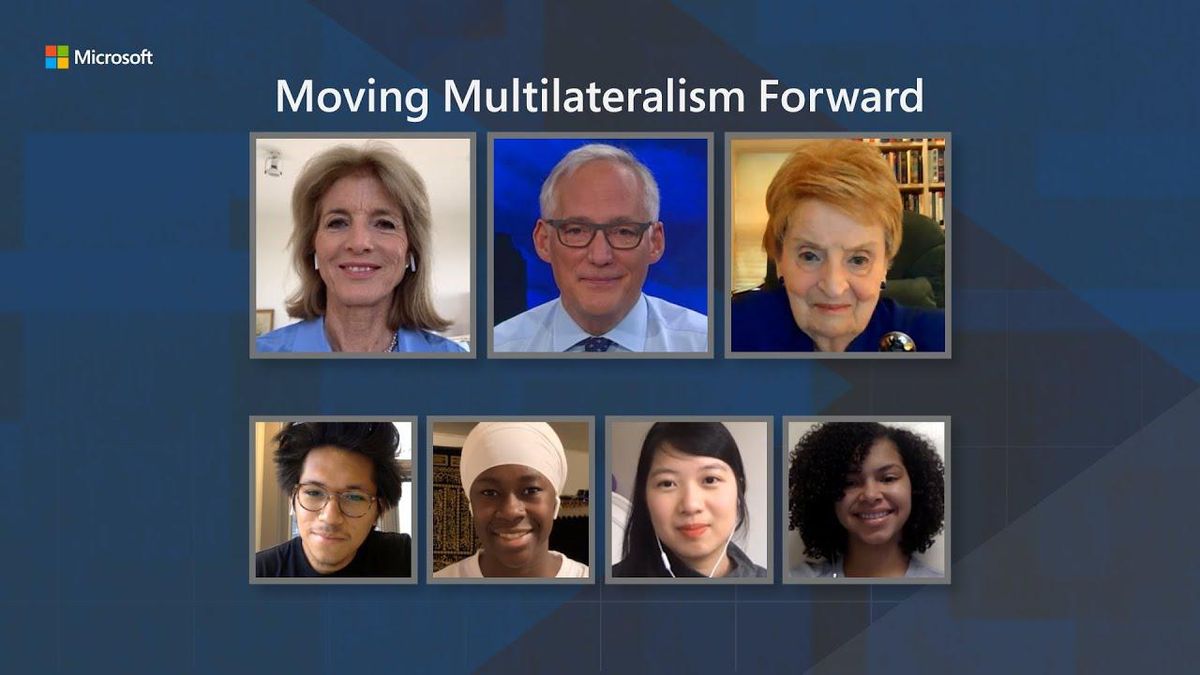Moving Multilateralism Forward: Madeleine Albright, Caroline Kennedy, and John Frank discuss
Watch: "Moving Multilateralism Forward," an intergenerational dialogue between Madeleine Albright, former US Secretary of State; Caroline Kennedy, former US Ambassador to Japan; John Frank, Microsoft Vice President of UN Affairs; and four current and former students of the Marble Hill School for International Studies in the Bronx, NY. These veteran diplomats and young minds discuss the future of multilateralism, the unprecedented challenges facing the international community, the power of young people in leading change, and the promise that technology has to be a force for good.
During the UN's 75th year, the conversation reminds us that inclusive multilateralism must involve diverse stakeholders across the international system – and most importantly across generations – and that young people are optimistic about our future, understand the value of multilateral institutions, and want to be involved in achieving a better world.
Watch the full video above, and the teaser here:
Moving Multilateralism Forward: Sizzlewww.youtube.com
This content is brought to you by GZERO Media's 2020 UN General Assembly partner, Microsoft.

















